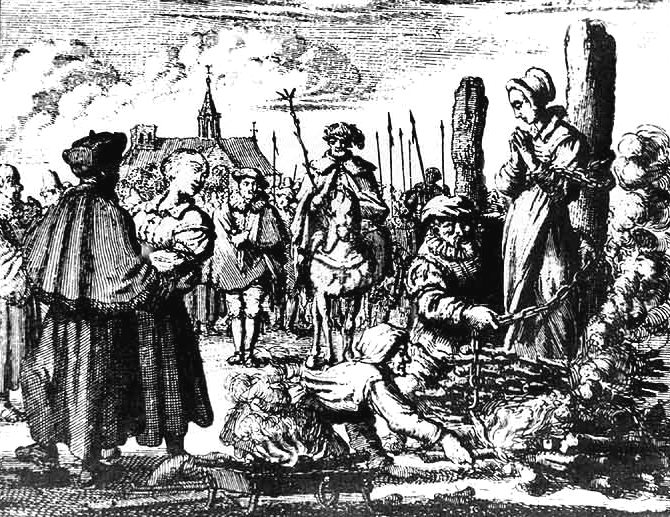
Pope Innocent VIII was the head of the Catholic Church from 29 August 1484 to his death in 1492. Those 8 years in charge made him infamous for 2 deeds: confirming Tomas de Torquemada as Grand Inquisitor of Spain, and starting one of the most oppressive witch hunts in European history.
Pope Innocent VIII issued the papal bull Summis desiderantes (5 December 1484), which was written in response to the request of Dominican Inquisitor Heinrich Kramer for explicit authority to prosecute witchcraft in Germany, after he was refused assistance by the local ecclesiastical authorities. The bull recognized the existence of witches:
"It has recently come to our ears, not without great pain to us, that in some parts of upper Germany, [...] Mainz, Köln, Trier, Salzburg, and Bremen, many persons of both sexes, heedless of their own salvation and forsaking the catholic faith, give themselves over to devils male and female, and by their incantations, charms, and conjurings, and by other abominable superstitions and sortileges, offences, crimes, and misdeeds, ruin and cause to perish the offspring of women, the foal of animals, the products of the earth, the grapes of vines, and the fruits of trees, as well as men and women, cattle and flocks and herds and animals of every kind, vineyards also and orchards, meadows, pastures, harvests, grains and other fruits of the earth; that they afflict and torture with dire pains and anguish, both internal and external, these men, women, cattle, flocks, herds, and animals, and hinder men from begetting [...]"
It gave full papal approval for the Inquisition to proceed "correcting, imprisoning, punishing and chastising" such persons "according to their deserts". The bull essentially repeated Kramer's view that an outbreak of witchcraft and heresy had occurred in the Rhine River valley, specifically in the bishoprics of Mainz, Cologne, Trier, Salzburg and Bremen, including accusations of certain acts. Later Kramer compiled his views on witchcraft into his book Malleus Maleficarum, which was published in 1487. Summis desiderantes affectibus was published as part of the preface of the book, signaling papal approval for the work. The bull, which synthesized the spiritual and the secular crimes of witchcraft, is often viewed as opening the door for the witchhunts of the early modern period.